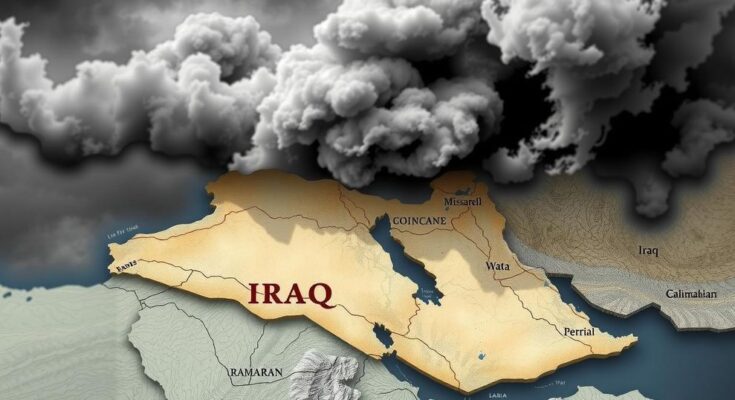The Iraqi Prime Minister announced the death of Islamic State leader Abdallah Maki Mosleh al-Rifai in an operation involving Iraqi intelligence and U.S.-led forces. The operation coincided with a visit from Syrian officials discussing joint efforts against IS, underscoring the complex dynamics between Iraq and Syria amidst concerns of IS resurgence and regional stability.
On March 14, 2025, Iraqi Prime Minister Mohammed Shia al-Sudani announced the death of Abdallah Maki Mosleh al-Rifai, also known as “Abu Khadija,” the head of the Islamic State in Iraq and Syria. This operation was executed by the Iraqi national intelligence service in collaboration with U.S.-led coalition forces in Anbar province, Iraq. Al-Sudani hailed this accomplishment as part of ongoing efforts against terrorism in the region.
Al-Rifai had been designated as the “deputy caliph” of the militant group and was labeled as one of the most dangerous terrorists globally. The operation occurred overnight, with officials confirming his death shortly after the event. This announcement coincided with a visit from Syrian Foreign Minister Asaad al-Shaybani to Iraq, where discussions focused on mutual efforts to combat IS.
During a news conference, Iraqi Foreign Minister Fouad Hussein addressed the need for cooperation between Syria and Iraq, stating that both nations face common challenges related to terrorism. He highlighted an operational collaboration formed by Syria, Iraq, Turkey, Jordan, and Lebanon in Amman, which is set to confront IS. The geopolitical relationship between Iraq and Syria remains complicated, partly due to the legacies of past regimes and foreign influences.
Despite historical tensions, Minister al-Shaybani emphasized the cultural and economic ties between Baghdad and Damascus, expressing that strengthening their partnership could enhance regional stability and reduce dependence on external powers. With concerns around a resurgence of IS following the fall of Syrian President Bashar Assad, Iraqi officials are increasingly vigilant.
The United States and Iraq had previously agreed to conclude the American-led coalition’s military presence in Iraq by September 2025, as it was believed that the threat from IS was contained. However, recent developments have prompted a reevaluation of this position among Iraqi political leaders, particularly following Assad’s fall, stirring anxieties about potential security challenges.
The death of al-Rifai marks a significant tactical victory against Islamic State operations in Iraq. The collaborative efforts between Iraq and Syria represent a strategic approach to countering terrorism in the region amid shifting geopolitical dynamics. Enhancing partnerships could play a crucial role in maintaining stability and addressing the resurgence risks of IS following the fall of Assad. Future vigilance and cooperation will be essential as these nations navigate their complex historical and political landscapes.
Original Source: apnews.com




